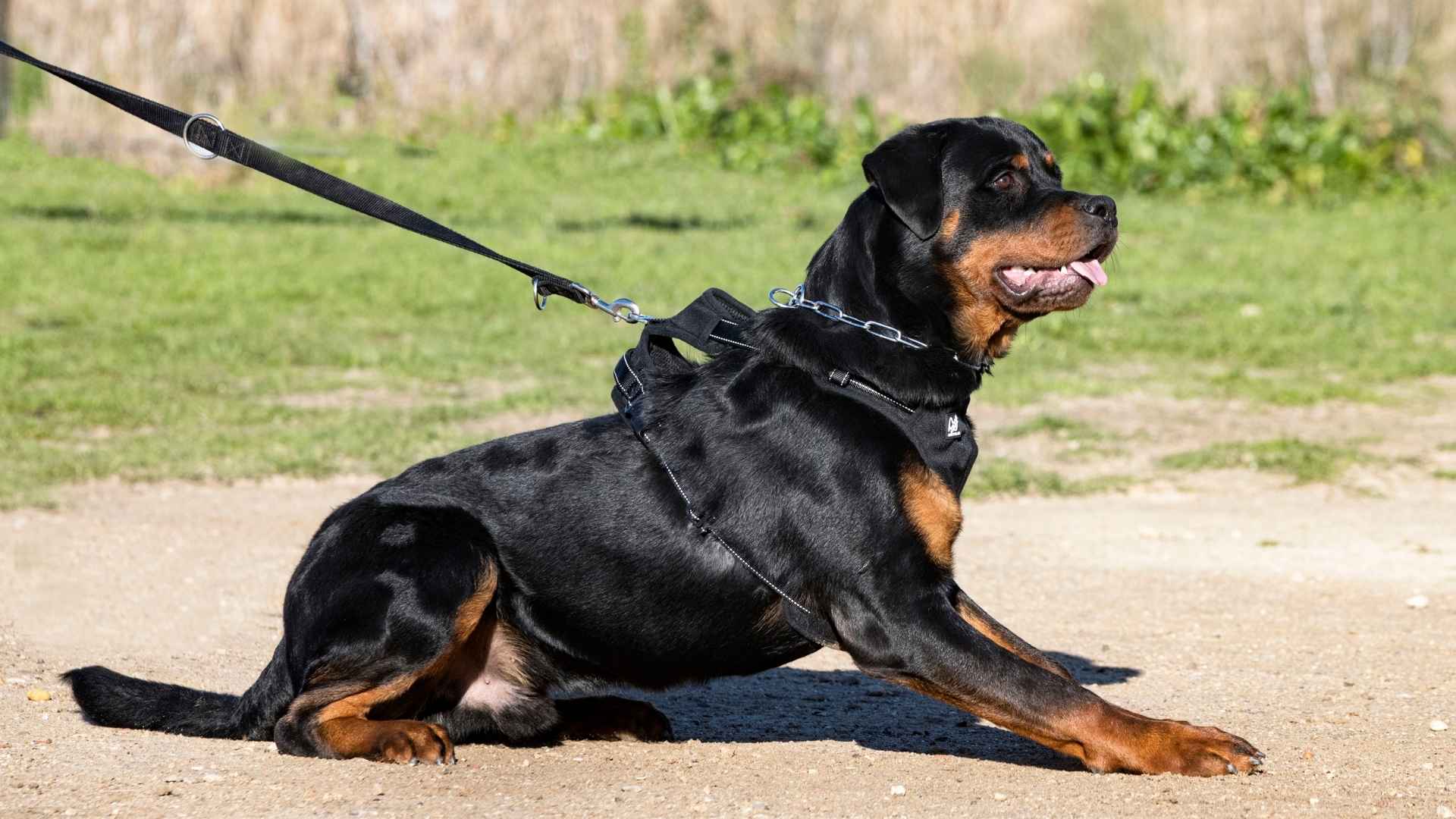Not everything shapes up right away. Some require consistent effort and training to bring out their best, and the same goes for some of the dog breeds. However, the dogs are known to be the friendliest pets, having an affectionate and social nature towards humans.
But, there are certain breeds that need to undergo strict training processes to behave well around strangers and other animals as well. Their quirky nature and some of their personality traits provoke their aggressive side, which can only be dealt with through professional training.
So, in this article, we will walk you through some of the hardest dog breeds that can literally test your patience when it comes to their training.
7 Extremely Hard-to-Train Dog Breeds
No matter what the breed of dog is, they need to go through a training process to get familiar with interacting with others. But things get trickier with some breeds. It’s not because they are bad dogs, but it’s mostly because of their breeding histories and distinct personalities.
Here are some of the key factors that determine the trainability of dog breeds:
Intelligence: The intelligence of the dogs is inversely proportional to their trainability of the dogs. Due to their high intelligence, they may have a very stubborn streak. For this reason, highly intelligent dogs like to disobey the commands to live on their own terms.
Sturdy Built: As the large dogs are familiar with their size and build, they don’t hesitate to jump into a competition with other dogs. The sense of superiority is higher in them, due to which the pet owner may go nuts while training them.
Higher Energy Levels: As some dogs were originally bred to perform certain tasks such as hunting, herding, or pulling loads, they have higher energy levels compared to other breeds. This energy still runs in their genes, due to which they constantly need something to do to utilize all that energy.
Now, here we have enlisted the top 7 breeds that are notoriously difficult to train.
1. Siberian Husky
|
Weight |
35-60 pounds |
|
Height |
20-23.5 inches |
|
General Traits |
Energetic, Intelligent, Friendly, Independent |
How can a dog bred to run for miles in the frozen tundra be happy sitting around indoors? The Siberian Husky may be known for its stunning looks, but it’s also one of the most active breeds, originally used for pulling sleds across long distances.
In order to release the energy that runs in their blood, Siberian Huskies need to be engaged in certain activities, such as canicross, bike joring, hiking, and brisk walking. If one neglects their exercise needs, their destructive behavior can be activated, which provokes them to disobey the commands and triggers their prey drive as well.
Siberian Huskies can be tough to train because they’re smart, energetic, and very independent. They were bred to work on their own in packs, so their natural instincts sometimes make them less responsive to regular training methods.
2. Chinese Shar-Pei
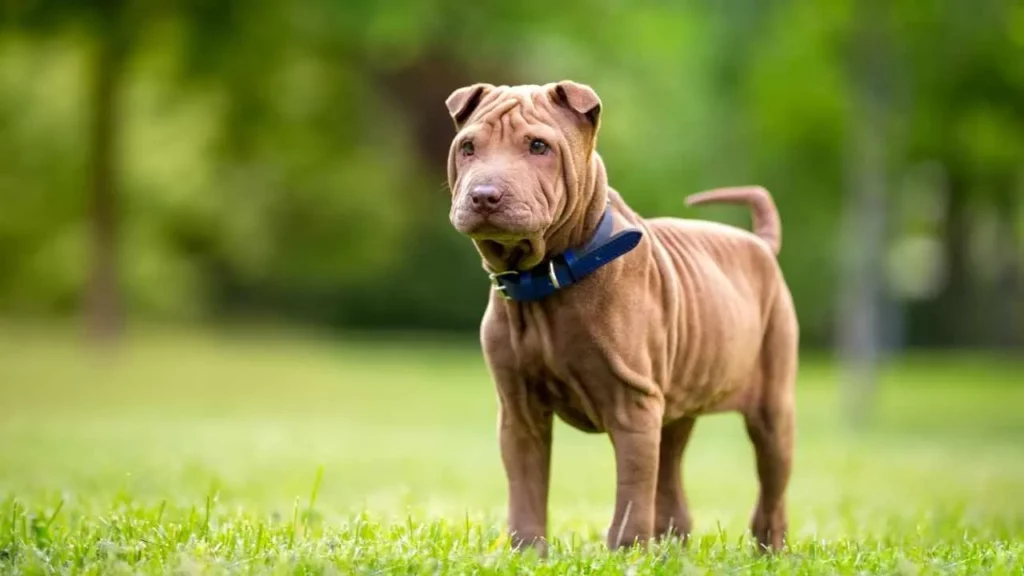
|
Weight |
45 to 60 pounds |
|
Height |
18 to 20 inches |
|
General Traits |
Loyal, Calm, Aloof with Strangers, Wrinkled skin |
Ever met someone who only feels comfortable around their own family and avoids socializing with others? That’s exactly how a Chinese Shar-Pei is. This breed is very loyal but reserved with strangers, and it’s not ideal for first-time dog owners—Shar-Peis need consistent, experienced training and socialization.
According to PetMD, the prey drive of Chinese Shar-Pei is also high, which excites them whenever they are around other dogs of smaller size or cats. For this reason, they need to be socialized from a young age so that they behave well around other animals and strangers.
In order to train them, instead of punishing, one should use the positive reinforcement method. Since they are pups, reward them with treats or praise to make them understand how to behave politely. If the training of this breed is skipped, they might act territorial, and their aggressive side may lash out at strangers.
3. Afghan Hound
|
Weight |
45 to 65 pounds |
|
Height |
25 to 27 inches |
|
General Traits |
Independent, Dignified, Strong-willed |
Afghan Hounds are one of the most beautiful dog breeds, but they need experienced owners. Because they were originally trained to hunt alone, they’re very intelligent and independent, often making decisions on their own.
Most of the time, Afghan Hounds behave like “Oh, you called me? I haven’t listened to that”. But, in reality, they are just selective listeners. So, one needs to know how to deal with the stubborn nature of the dogs before owning them.
Being a sensitive breed, training them harshly can be a big fail, as they react strongly to the forced behavior. However, when they are approached with patience, understanding, and the right training method, i.e., on-leash training, the turnover can be really great.
4. Rottweiler
|
Weight |
80 to 135 pounds |
|
Height |
22 to 27 inches |
|
General Traits |
Gentle, Aloof, Calm, Confident, Protective, Strong-willed, Intelligent |
With a past record of attacking dogs, Rottweilers are the hardest dogs to train. As this breed was originally bred to be a guard dog, AKC mentions that their protective instincts are really high, due to which their mental stimulation needs to be met through training sessions.
Owing to their tough appearance, Rottweilers are often perceived as intimidating dogs. But the truth is that they are extremely loyal companions to their family. So, if early socialization is done, they can be the best companions to be with.
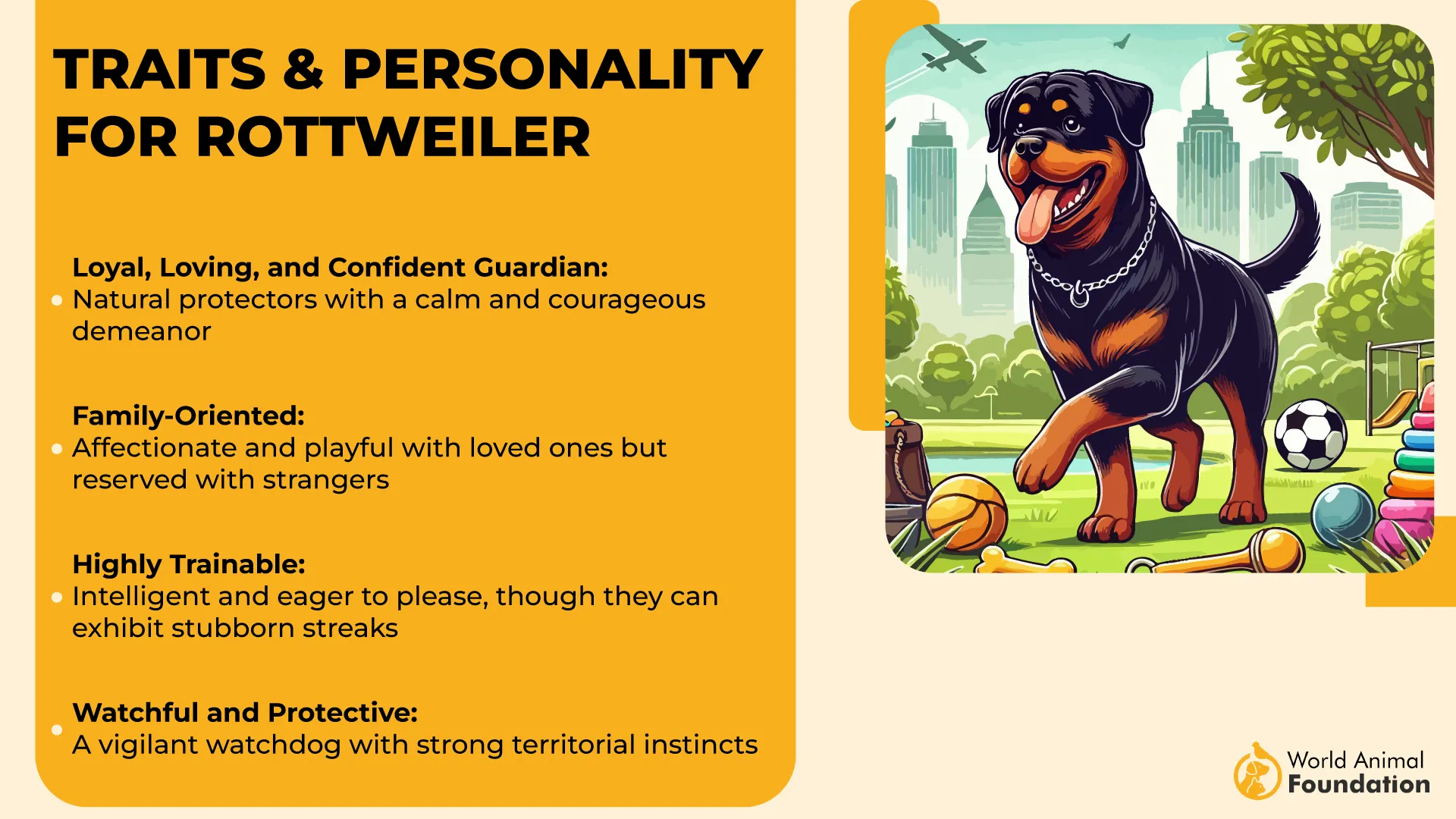
Rottweilers are smart dogs, so early socialization and consistent training help bring out their best. Start with basic commands and reward them with treats when they listen—this makes obedience training effective and fun.
5. Chow Chow
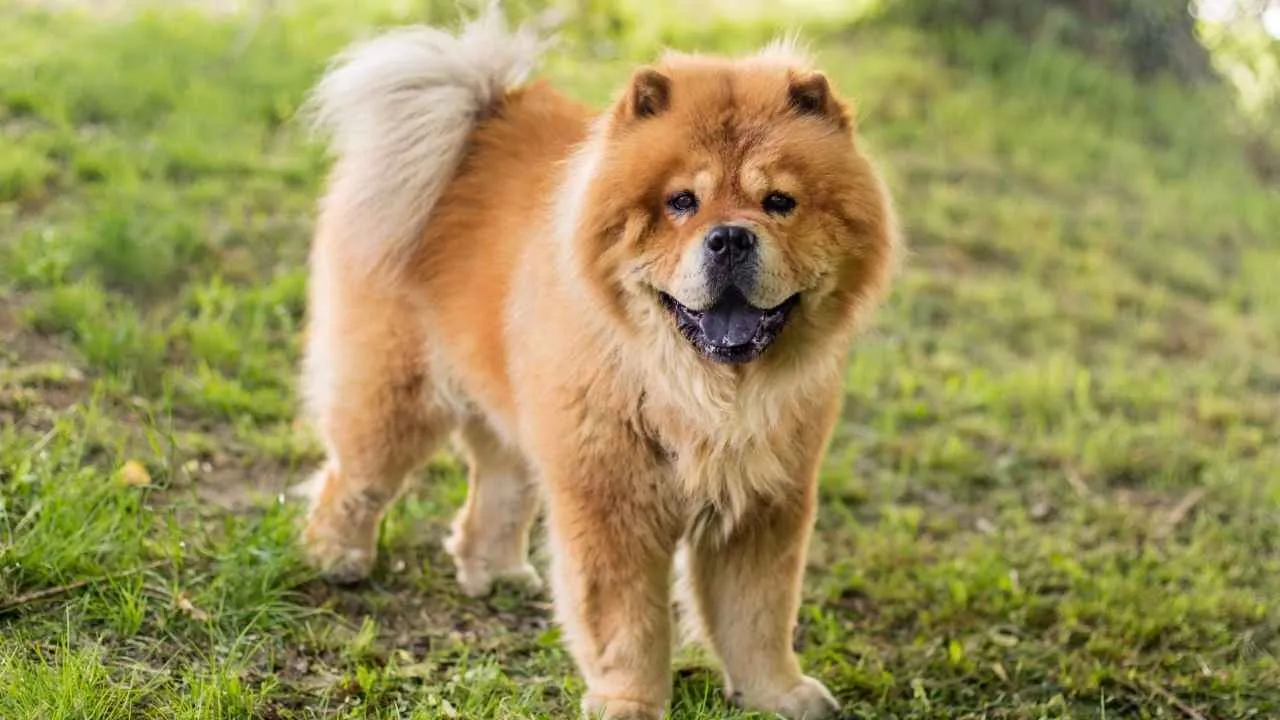
|
Weight |
45 to 70 pounds |
|
Height |
17 to 20 inches |
|
General Traits |
Aloof, Calm, Loyal, Independent |
Jealous, stubborn, and dominant—these traits show the tougher side of the otherwise adorable Chow Chow. Naturally aloof and independent, they often think for themselves and can ignore commands, making them one of the most challenging breeds to train.
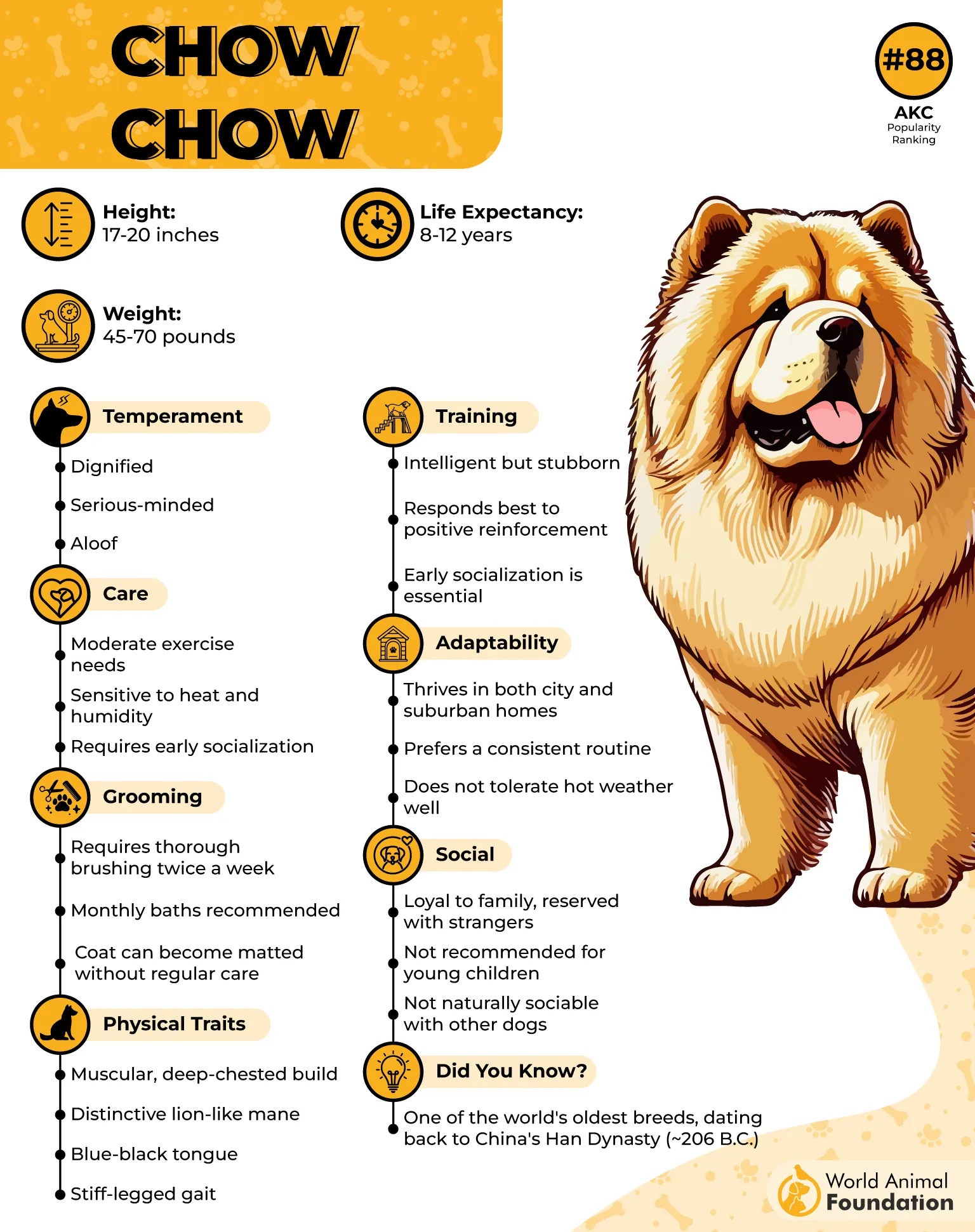
However, with proper socialization and dedicated training sessions, they can easily adjust to domestic environments. One needs to build a relationship of trust with Chow Chows instead of opting for harsh training methods. Training this furry friend with patience, consistency, and reward-based training methods.
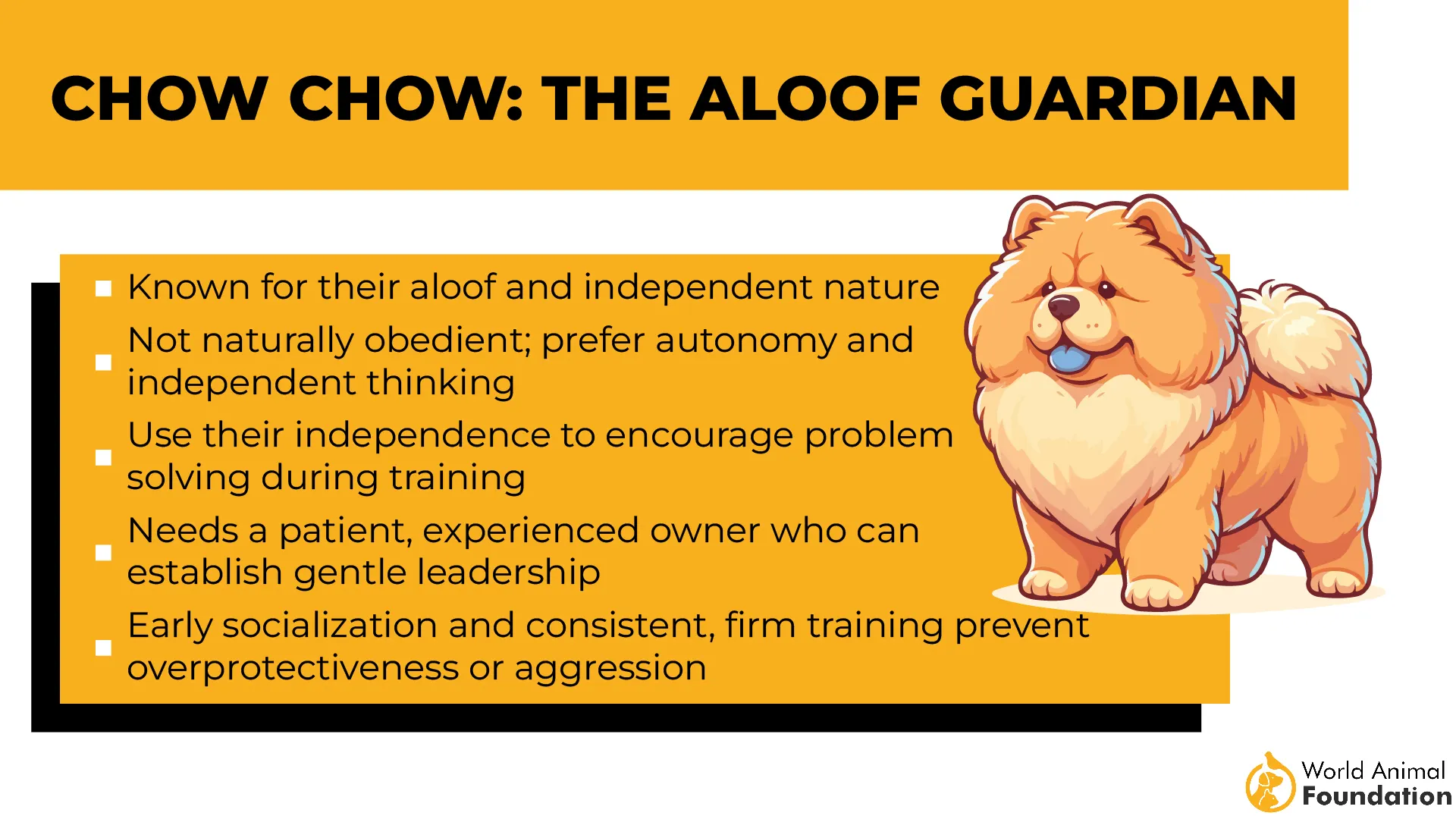
According to Petplan, Chow Chows are very devoted dogs that form strong bonds with their owners, making them loyal and loving companions. They have a strong guarding instinct and can be wary of strangers, so early socialization is important for this breed.
6. Jack Russell Terrier
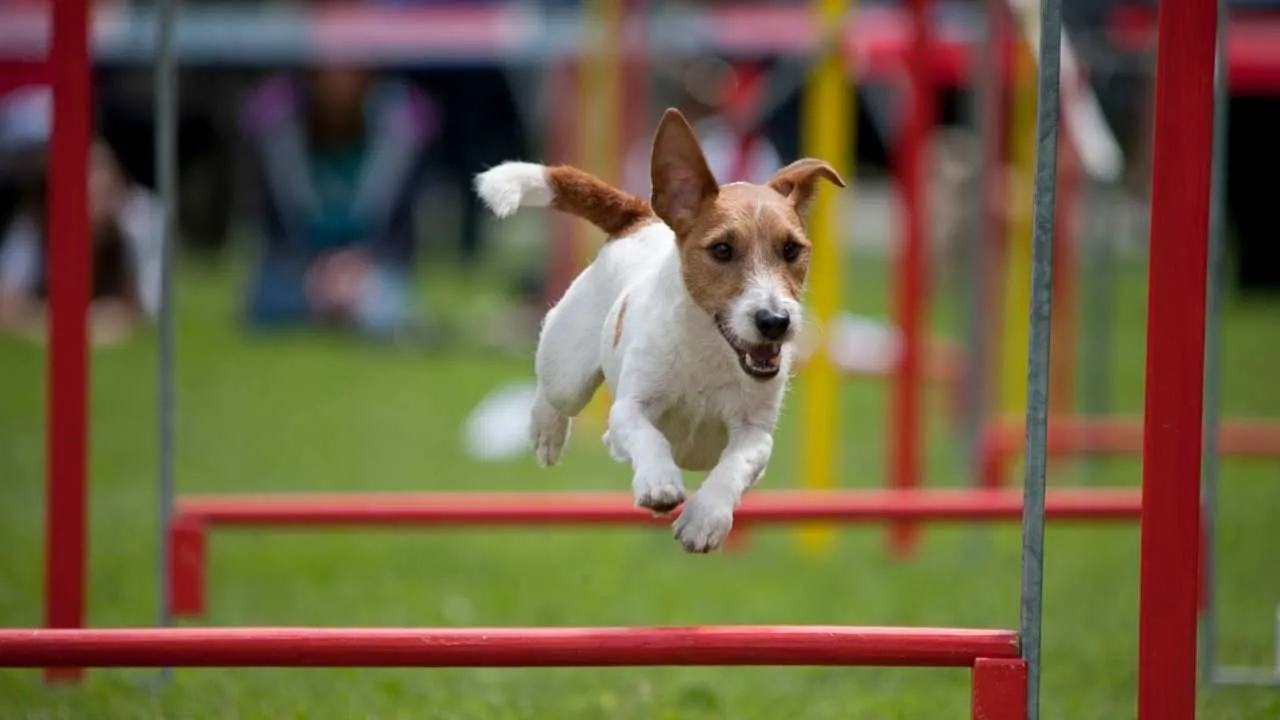
|
Weight |
13 to 17 pounds |
|
Height |
13 to 14 inches |
|
General Traits |
Energetic, Intelligent, Bold, Lively, Tenacious |
Jack Russell Terrier is one of the breeds that have high energy levels. As they were born to hunt foxes, they have a higher prey drive that makes them chase other animals, specifically the ones smaller in size than themselves.
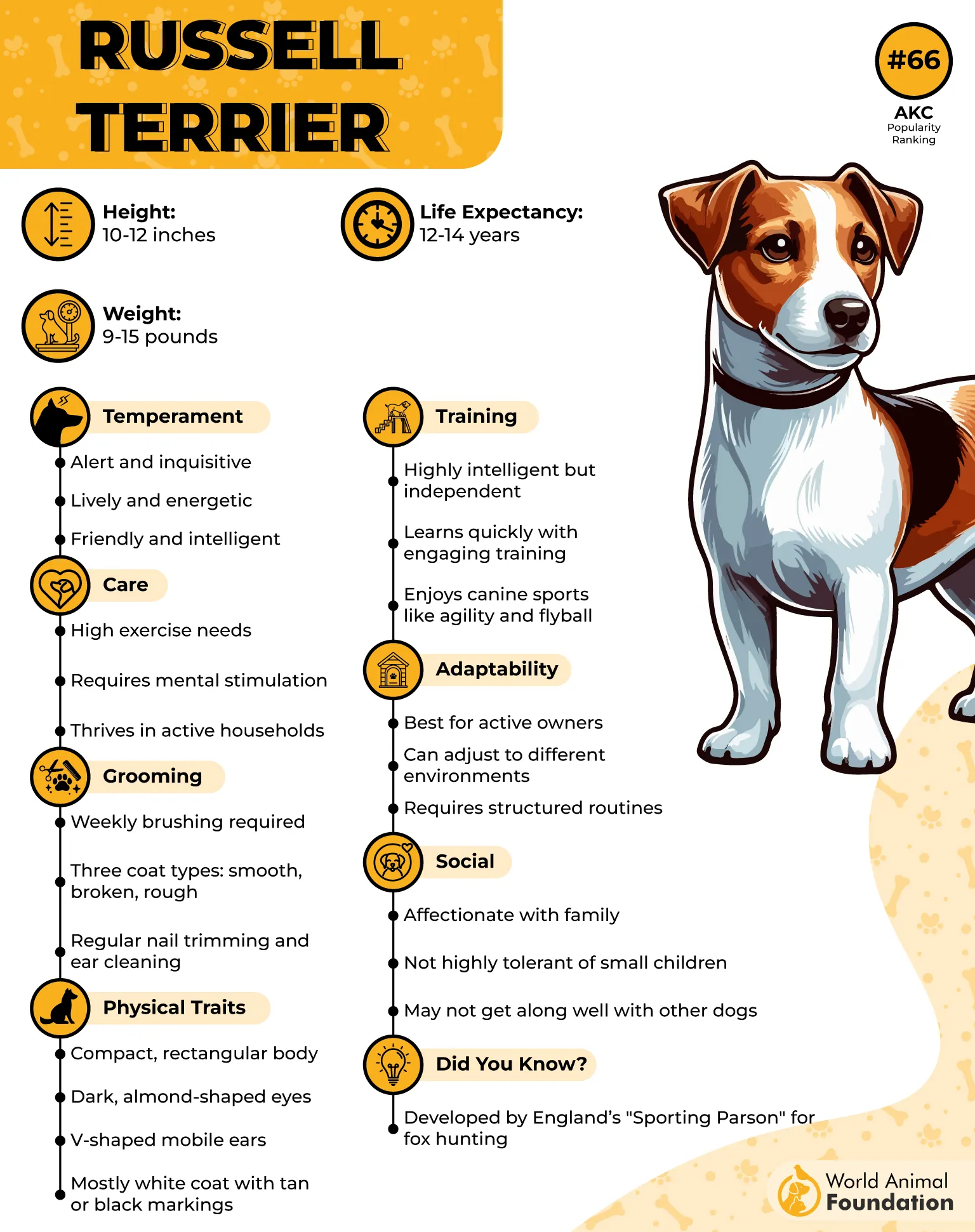
That’s why this breed is not for the ones who are new to the dog world. The training of a Jack Russell Terrier needs to start at a young age with some brain games and pup tricks. Also, they need exercises in their daily routine to regulate their mental stimulation.
Jack Russells can be great family pets when properly trained and socialized from a young age. However, they may be less patient with very young or energetic children and might show frustration by nipping.
7. Basset Hound
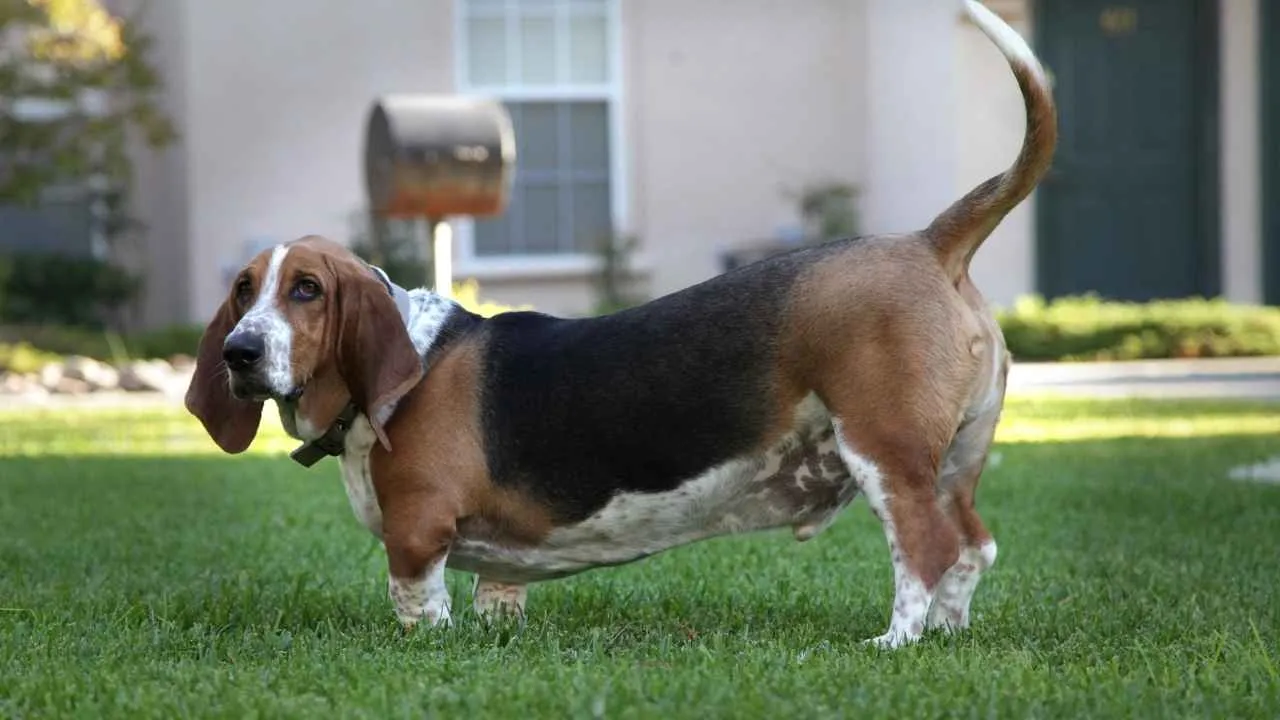
|
Weight |
40 to 65 pounds |
|
Height |
Under 15 inches |
|
General Traits |
Laid-back, affectionate, stubborn, excellent scent tracker |
These dogs are trained to detect even the faintest scents, which means their strong sense of smell can easily distract them. They also tend to be quite independent, so they may not always respond well to basic obedience training.
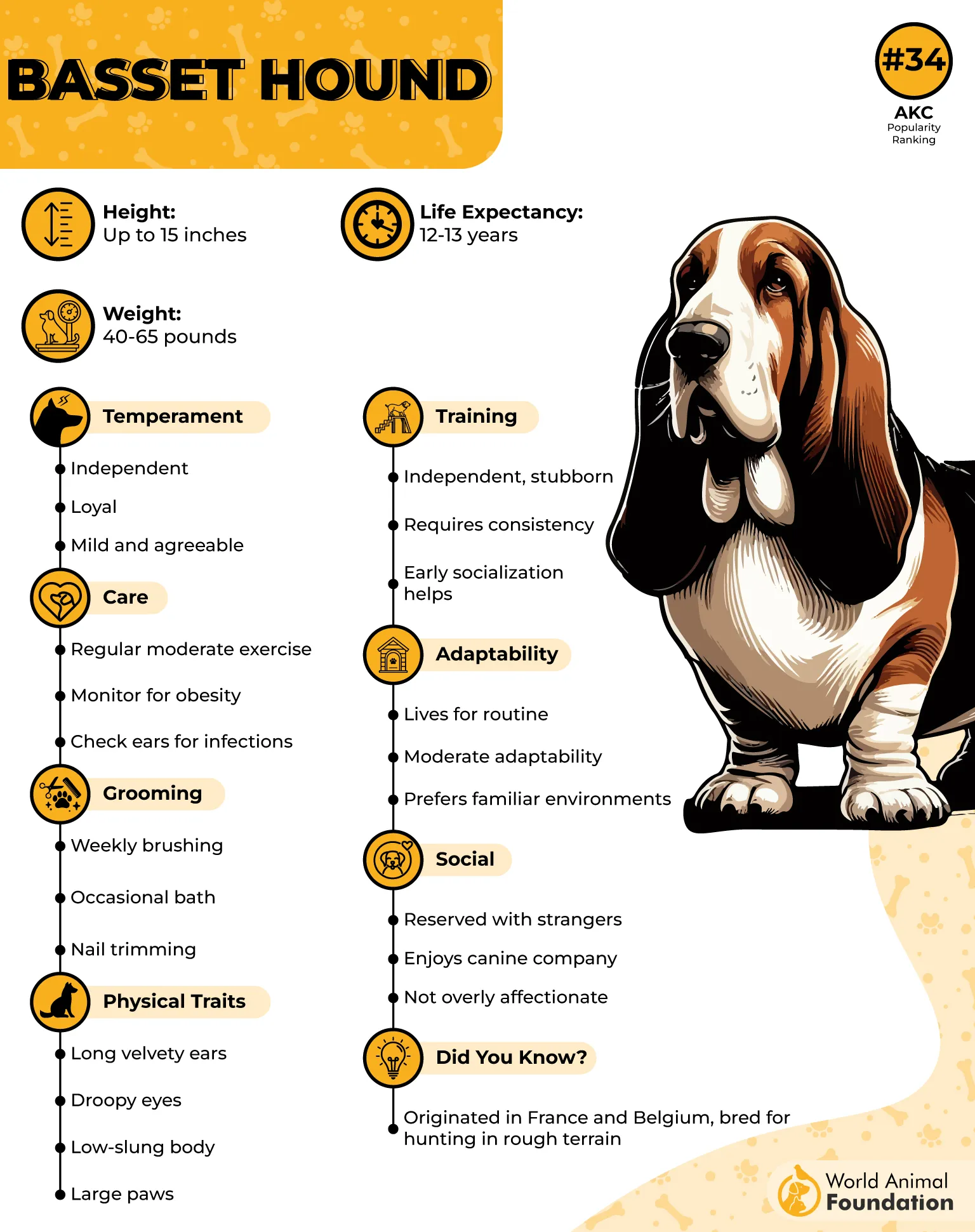
This can make Basset Hounds challenging to handle. However, using high-value treats during dog training can encourage good behavior. Keeping them active with daily walks, scent games, and mental challenges also helps in their training.
Basset Hounds are calm but playful dogs who love showing affection to their owners. With their floppy ears, droopy faces, and short legs, they’re easy to spot. Though originally bred to hunt small animals and game, these laid-back dogs are surprisingly energetic.
Conclusion
Concisely, there are some breeds that are really hard to deal with. But what you need to remember is that even the most difficult dogs can be turned into well-behaved and well-mannered companions if the training is done correctly. However, instead of choosing harsh training methods, most dogs value mutual respect, so moving forward with patience and consistency can give you a great turn over (and definitely a loyal friend as well).


